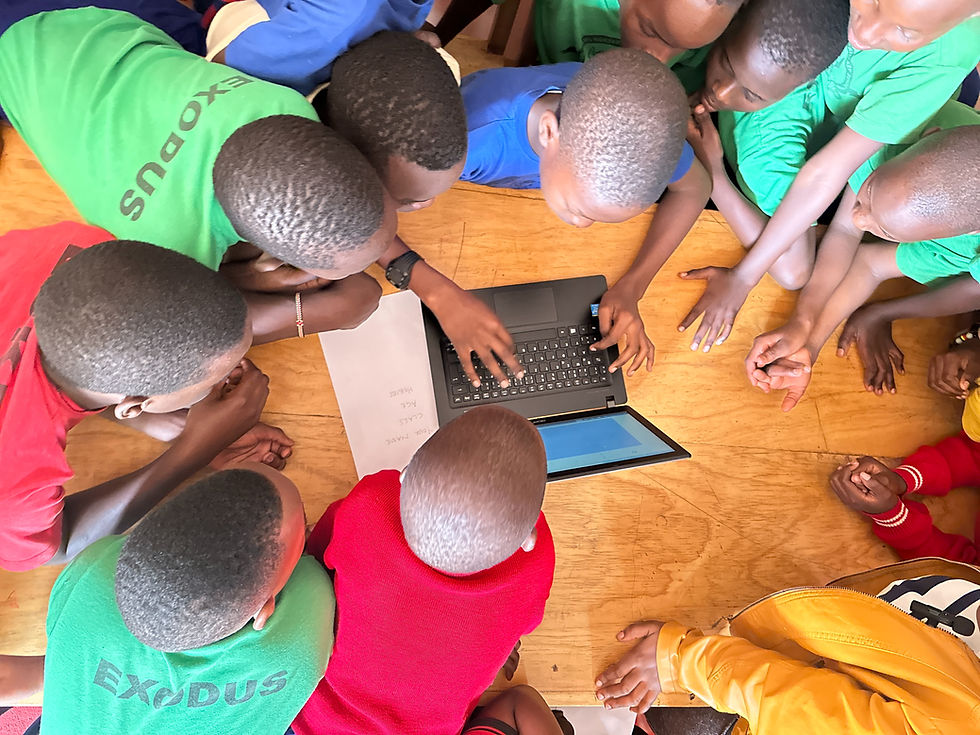Representation Matters
- Hayden Logan
- Aug 9, 2022
- 3 min read


Reading the children's book Keke Misses Home, written by Lenoir Foundation founder
James Jay Mawaka, you might struggle to immediately see what little Keke's story has
in common with the internationally recognized Marvel superhero movie Black Panther
but both stories, in their way, subtly provide a critical message.
Living in the UK, in day-to-day dialogue, you are unfortunately most likely to hear Africa
referenced in phrases such as "children are starving in Africa, you know" said
almost in jest whenever someone doesn't finish their plate of food or at Christmas time
as everyone sings along to Band-Aid's classic "Do they know it's Christmas time? which
contains lyrics such as:
"And there won't be snow in Africa this Christmas time
The greatest gift they'll get this year is life
Where nothing ever grows
No rain nor rivers flow
Do they know it's Christmas time at all?"
These phrases are said without a second thought. They are rarely intended to be
insulting or inflammatory. Sadly they are just indicative of the lack of representation of
the African continent across the globe.
Until recently, the first images that would come to mind of Africa for people who have
never been there are of the third-world countries shown in adverts for charities, of the
malnourished children and the dirty water. And whilst those areas of course still exist,
the purpose of this article is not to detract from the fact there is still great poverty across
Africa and help is needed in the forms of charities and foundations to eradicate such
poor living conditions but to help highlight that many of these African countries have
cities and towns that are not so different from the big European cities, that there is also
a wealth of culture and first-rate areas to make a living in Africa.
Whilst there is still a way to go, it is vital to recognize the great strides in modern media
that have been made. We are seeing more and more diverse casts and main characters
of color, but that is only the beginning. This brings us back to what Keke Misses
Home and Black Panther have in common and what makes them so important
regarding representation?

They both have persons of color as their main and supporting characters, which
thankfully today is also true of other books and films, but the element that gives them
greater importance is that they both shine a light on Africa being somewhere you can
live a happy life.
Yes, it is important to note that Wakanda is a fictional country, and much of the
technology is not real (well, at least not yet) but what it shows is a world where the most
technologically advanced country in the world is not in America or Europe but Africa.
Young African children who watch this can only be inspired, by seeing it on the big screen
that there are no limits to what can be achieved.

In Keke Misses Home (spoiler alert if you haven't yet read it, you can pick up a copy at
Amazon, Walmart, or Barnes & Noble), Keke and her family move to Uganda; by the end of the book, Keke is happy and excited at the prospect of making Uganda her new
home.
Too often are young African children taught that their only chance at a prosperous life is
to escape Africa; books and movies like these show them that there are amazing people
and places within Africa. It is not a place to escape but a heritage to be proud of and a
place to build a wonderful life.
We need more movies like Black Panther and more books like Keke Misses Home to
make it into the mainstream to help educate the world that the countries in Africa are so
much more than the third world they are all too often portrayed as. That they each have
their own culturally rich histories, amazing people, and each in themselves a land of
opportunity.







Hôm qua, mình đang tìm thông tin về cách soi cầu cho một số trò chơi xổ số thì tình cờ thấy cái trang soi cầu 247. Mình mở ra xem thử, thấy giao diện khá dễ nhìn, không bị rối mắt như một số trang khác mình từng ghé qua. Mình có lướt qua vài phần nội dung, thấy cách phân tích cũng khá chi tiết, nhưng vẫn chưa rõ lắm về độ chính xác của các dự đoán. Dù sao thì mình cũng bookmark lại để theo dõi thêm, chờ xem có gì mới trong thời gian tới. Thực sự là muốn tìm hiểu thêm, vì nghe nói có nhiều người thành công từ đây.
Hôm qua, mình đang tìm thông tin về các trận đấu bóng đá sắp tới và tình cờ thấy trang bongdaso. Mình mở ra xem thử, thấy giao diện khá dễ nhìn, không bị rối mắt như một số trang khác mà mình đã vào. Tốc độ tải trang cũng nhanh nữa, làm mình cảm thấy thoải mái khi lướt xem các thống kê và lịch thi đấu. Mình để ý có nhiều thông tin chi tiết, nhưng thi thoảng cũng hơi khó tìm nếu không biết rõ mình cần gì. Dù sao thì mình đã bookmark lại để có thể quay lại dễ hơn, hy vọng sẽ tìm được thêm thông tin hữu ích từ đây!